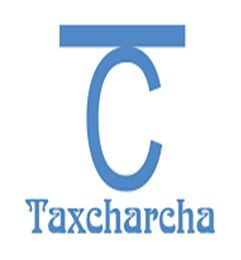- Have you ever wondered how the income tax authorities got to know that you have purchased gold jewellery of more than Rs. 2,00,000 or a luxury car or made a high value investment!!
Have you ever received a notice for providing source of income of certain expenditure made by you?
If the above answers are in affirmative, lets have a discussion on the provisions of the Income Tax Act, 1961 which mandates certain classes of persons to file a Statement of Financial Transaction furnishing specified transactions in the specified form earlier know Annual Information Return (AIR).
Section 285BA of the Income Tax Act, 1961
Section 285BA of the Income Tax Act, 1961 obligates statement of financial transactions or reportable account for the persons who are responsible for registering or maintaining books of account or other documents containing a record of any specified financial transaction.
In a concise manner, specified persons are responsible for filing a statement of financial statement for all the high value transactions entered into during the financial year in Form 61A.
Who all the specified persons?
Rule 114E of the Income Tax Rules provides the list of the classes of the persons responsible for reporting the high value transactions. Following are the specified persons as detailed in the Rule:
- A banking Company
- A co-operative Bank
- Post Master General of Indian Post Office
- Nidhi as referred to in Section 406 of the Companies Act,2013
- Non-Banking Financial Institution
- A company or institution issuing bonds or debentures
- A company issuing shares
- A company listed on stock exchange
- A trustee of the mutual fund
- Inspector General appointed under the Registration Act,1908
- Any person who is liable for audit under section 44AB of the Act.
Nature and value of transaction covered under specified transactions
| S.No. | Nature and value of transaction | Amount of transaction | Class of persons |
| 1. | Payment made in cash for purchase of bank drafts or pay orders or banker’s cheque | Rs. 10 lakhs | A Banking company |
| 2. | Payments made in cash for purchase of prepaid instruments issued by the RBI | Rs. 10 Lakhs | A Banking Company |
| 3. | Cash Deposit or Cash Withdrawal including through bearers Cheque in one or more current account | RS. 50 Lakhs | A Banking Company |
| 4. | Cash Deposit or Cash Withdrawal including through bearers Cheque in other than current account | Rs. 10 Lakhs | A Banking Company
|
| 5. | Payments made by any person in respect of one or more credit cards issued to that person to that person, in a financial year. | Rs. 1 Lakh or more in cash ; Rs. 10 Lakhs or ore through any other mode | A Banking Company |
| 6. | Receipt from any person for acquiring bonds or debentures issued by the company or institution | Rs. 10 lakhs or more in a financial year | A company or institution issuing bonds or debentures |
| 7. | Receipt from any person for acquiring shares issued by the company. | Rs. 10 lakhs or more in a financial year | A company or institution issuing shares |
| 8. | Buy back of shares from any person | Rs. 10 lakhs or more in a financial year | A company listed on any recognised stock exchange. |
| 9. | Receipt from any person for acquiring units of one or more units of mutual fund | Rs. 10 Lakhs or more in a financial year | A trustee of mutual fund |
| 10. | Purchase or sale by any person of immovable property. | Rs. 30 Lakhs or more | Inspector General appointed under Registration Act 1908 |
| 11. | Receipt of cash payment for sale by any person of goods or services of any nature | Rs. 2 Lakhs or more | Any person who is liable for audit under section 44AB of the Act |
| 12. | Cash Deposit during the period 9th November 2016 to 30th December 2016 | Rs. 12.5 Lakhs or more in current Account ; Rs. 2.5 Lakhs or more in savings account | A Banking company; A post General;
|
What is the due date of filing Statement of Financial Transactions
Every specified person who is responsible for filing Statement of Financial Statement is obligated to file such statement by the end of May for the financial year i.e. for the purpose of financial transactions entered into by the persons during the period 01.04.2017 to 31.03.2018, the responsible persons will file the Statement of Financial Statement by 30th May, 2018.
Consequences Of Non Filing Statement Of Financial Transaction
For the purpose of levy of penalty on the non-furnishing or wrong furnishing of information as mentioned in the statement of financial statement, the Income Tax Act, 1961 levies the following penalties:
- Under Section 271FA of the Act – if the peron who is responsible for filing Statement of Financial Statement fails to furnish, a sum of Rs. 500/ day is levied till such failure continues
- Under Section 271FAA – if the person provides inaccurate information in the Statement of Financial Statement, a sum of Rs. 50,000 is levied as a penalty.
Conclusion
Hence, from the above discussion it can be said that the Income Tax Authorities has held certain persons responsible to report high value transactions to them to keep an eye on such transactions and in case of any ambiguity , they can call such person for the purpose of knowing the source of such expenditure.
At the end, this is how the income tax authorities keeps an eye on your high value expenditure.

